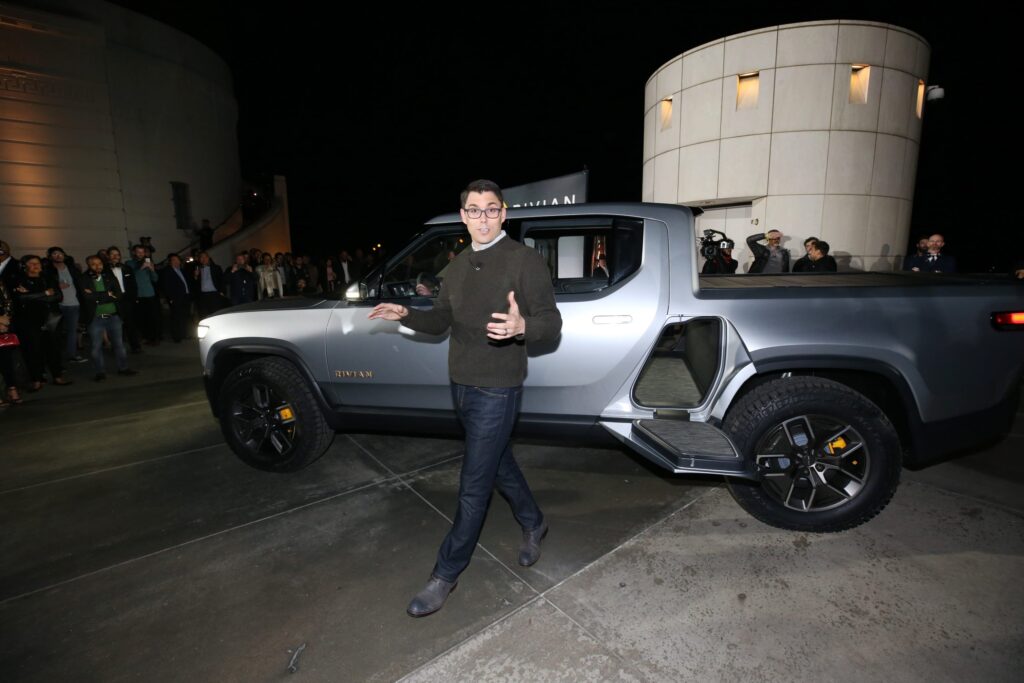Electric vehicle startups are increasingly strapped for cash and have little margin for error to ramp up production this year before their reserves are depleted, The Wall Street Journal reported Monday.
Startups across the sector are facing significant shortfalls as they begin to ramp up production, the WSJ reported. Although electric vehicle sales surged in 2022, startups generally underperformed compared to traditional automakers last year. (RELATED: America’s Electric Vehicle Dream Plagued By Broken Charging Stations, Study Finds)
Californian startup Rivian Automotive — which saw significant executive turnover in 2022 — was valued at roughly $12 billion when it went public in 2021, but spent about $6.6 billion in 2022, the WSJ reported. Despite plans to spend a further $6 billion in 2023, the company is forecasted to miss Wall Street’s production estimates and its stock has plummeted 80% from its price at its initial public offering.
Rivian CEO RJ Scaringe attends and speaks at an event on Nov. 26, 2018 in Los Angeles, California. (Phillip Faraone/Getty Images for Rivian)
Even fellow Californian firm Fisker, whose February earnings report sent shares soaring off plans to launch its first vehicle, the all-electric Ocean SUV, is set to spend roughly $610 million of its $736 million in cash reserves in 2023, the WSJ reported. While the company believes it has sufficient funds to successfully launch the Ocean, it is considering plans to raise funds from lenders.
Demand for electric vehicles is expected to weaken in 2023, potentially encouraging further price cuts in the industry, the WSJ reported. Lucid, another California startup that had roughly $1.74 billion in cash reserves at the end of 2022, estimates it has sufficient funding to last through the first quarter of 2024, but noted that weakened demand might threaten that outlook.
Electric vehicle startups, which have typically targeted the luxury market, now face increasing competition from traditional automakers, which have already established the supply chains and factories necessary to quickly scale up production, the WSJ reported. Luxury car companies “all have [electric vehicles] now,” Doug Betts, president of data-analytics firm J.D. Power’s automotive division, told the WSJ.
“The hard part is building the cars and the entire supply chain that goes with the cars,” Tesla CEO Elon Musk said last week, according to the WSJ. “This is a logistics challenge of extraordinary difficulty.”
All content created by the Daily Caller News Foundation, an independent and nonpartisan newswire service, is available without charge to any legitimate news publisher that can provide a large audience. All republished articles must include our logo, our reporter’s byline and their DCNF affiliation. For any questions about our guidelines or partnering with us, please contact licensing@dailycallernewsfoundation.org.


